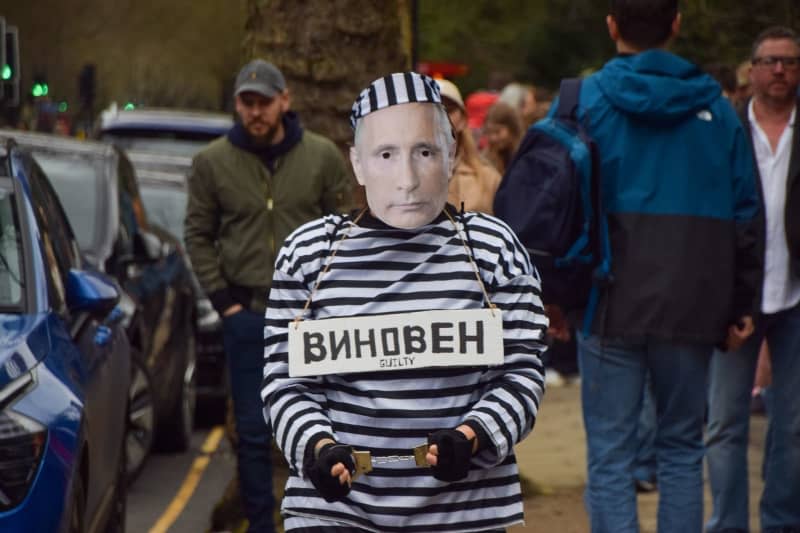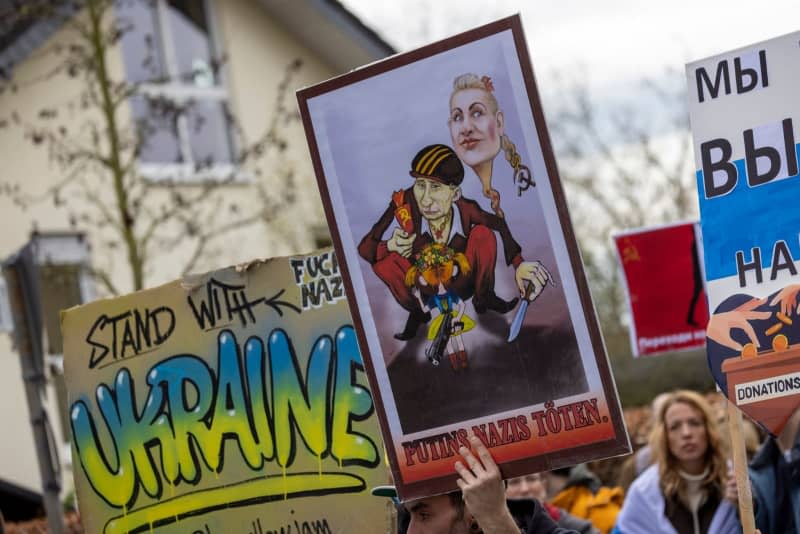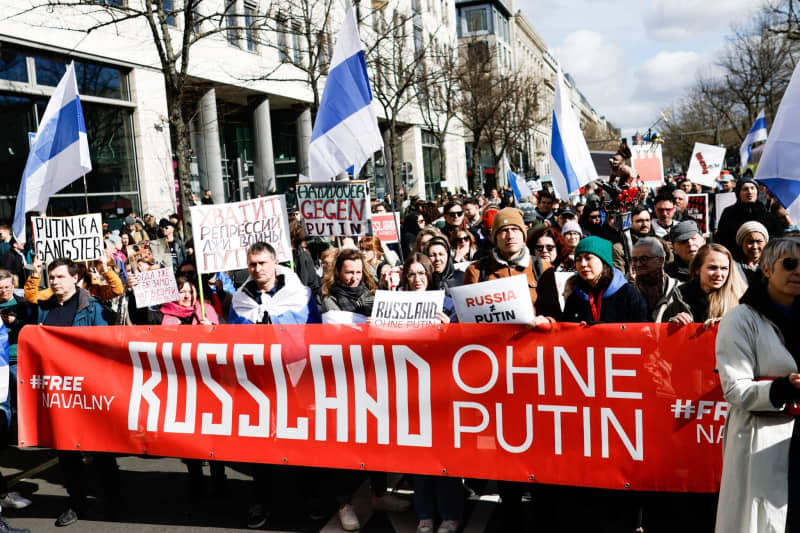The presidential election in Russia entered its third and final day on Sunday and was accompanied by a wave of protests by thousands of opponents of President Vladimir Putin who is widely expected to easily seal another six-year term in office.
Despite attempts at intimidation by the authorities, voting on Sunday was marked in part by anti-Putin protesters, who turned out to voting locations at exactly noon as a sign of opposition to the 71-year-old Kremlin strongman, who has dominated Russian politics for almost a quarter of a century.
On Sunday afternoon, the electoral commission put turnout at above 70% of the 114 million electorate. This would represent a record. However, independent observers pointed to systematic fraud behind this high figure.
Electoral law experts in Russia and abroad have said the conditions for the vote are neither free nor fair: The opposition is excluded and the three authorized opposing candidates are considered loyal to the Kremlin.
Leading opposition politicians were removed from the ballot, have been driven into exile abroad, or are imprisoned in Russia.
The tension was palpable at the Ukrainski Boulevard polling station in central Moscow, where the steadily lengthening midday queue reached beyond a fence guarded by police.
Asked why she had come to vote, a visibly nervous elderly woman whispered: “To vote,” her eyes filling with tears.
A 64-year-old woman said: “We want to express our protest – against the war, against the regime, against all of that.”
More than 50 people appeared suddenly at noon at polling station 31 in Moscow’s Basmanny district. “We are here like cowboys gathering for a duel at 12 noon,” a young man who gave his name as Alexander said.
The Kremlin has organized the vote in such a way as to demonstrate the population’s supposedly high level of trust in Putin and support for his war against Ukraine.
Police in Russia arrested dozens of people who joined the midday protests, with the OVD-Info human rights media project counting around 70 arrests, most of them in Kazan, a city on the Volga River some 700 kilometres east of Moscow.
Arrests were also reported in Moscow and St Petersburg. Russian authorities had warned against joining the campaign, which they say would show “signs of extremist activity.”
Backers of the “Noon against Putin” protest include supporters of Alexei Navalny, the activist who died in a penal colony in the Polar Circle last month.
Opposition politician Boris Nadezhdin, who was barred from challenging Putin, was received with applause from students as he entered the Moscow Institute for Physics and Technology, which also served as a polling station.
“I think you will still have the opportunity to vote for me,” he said.
Navalny’s widow, Yulia Navalnaya, helped call for the noon protests and joined a demonstration outside the Russian embassy in Berlin, where more than 2,000 Russians living in Germany queued to vote at noon.
Navalny’s supporters gathered at his grave in the south-east of Moscow to lay flowers on the final day of the elections.
The circumstances of his death remain unclear, with many Putin critics and Western countries blaming the Kremlin.
Another Kremlin critic, Mikhail Khodorkovsky, who lives in exile in Britain, also joined the protest in Berlin. Anti-Putin Russian activists living abroad staged further demonstrations around the world.
Within Russia, numerous reports show that pressure is being exerted on citizens to take part in the election.
The elections are taking place across 11 time zones in the world’s largest country by area.
The first polling stations opened in the easternmost regions of Chukotka and the Kamchatka Peninsula at 2000 GMT on Saturday; the last ones in the Baltic Sea exclave of Kaliningrad are due to close on Sunday evening at 1800 GMT, after which exit polls and initial counts are to be released.
The final count is expected to be completed by Monday morning. Official pollsters have noted that Putin is aiming at a majority of 80%, the highest level since he first became president.
Internationally, the fact that the sham election is also being held in the occupied Ukrainian territories has been particularly criticized. Russia has annexed these territories in violation of international law.
According to local Russian authorities, a Ukrainian drone struck a polling place in the Russian-occupied region of Zaporizhzhya in south-eastern Ukraine on Sunday. There were no reported injuries.







